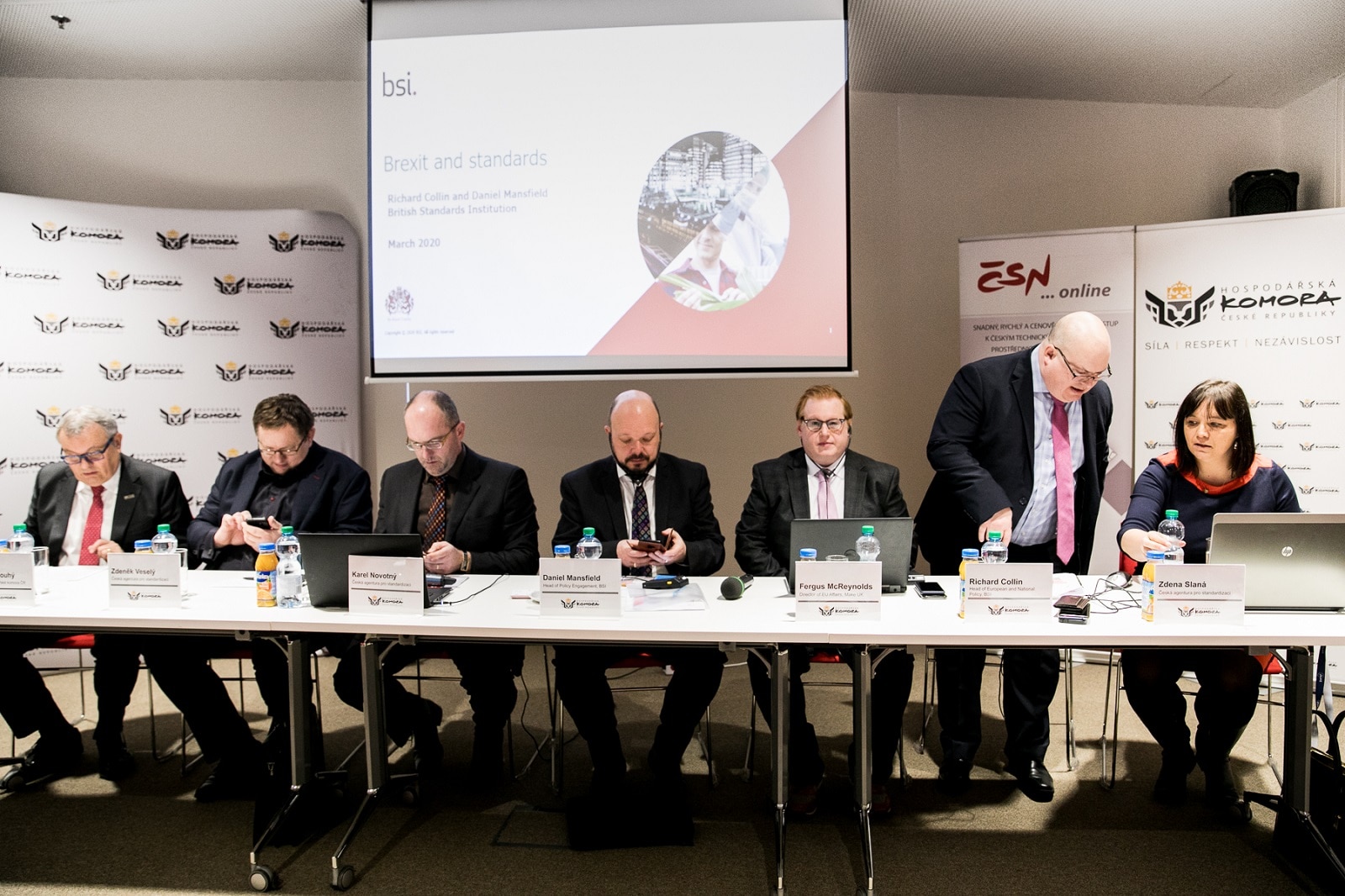Standardisation, accreditation and certification after Brexit seminar discussed the validity of standards, CE marking and trade relations with the UK

Prague, March 10, 2020 - The questions of what changes Brexit will bring in the areas of standardisation, accreditation and certification after the UK leaves the EU were the subject of a seminar organised by the Czech Standards Agency in cooperation with The British Standards Institute (BSI) and the Czech Chamber of Commerce (CCC) last week at the premises of the CCC.
The Czech Republic is one of the first European countries visited by Fergus McReynolds, Director of EU Affairs (Make UK), Daniel Mansfield, Head of Engagement Policy (BSI), and Richard Collin, Head of European and National Policy (BSI), to clarify BSI's position in the European standards organisations CEN (European Committee for Standardisation) and CENELEC (European Committee for Electrotechnical Standardisation) after the transition period, to discuss the issues of the validity and introduction of European standards into the UK system, the future of CE marking in the UK market and the regulation of trade relations from 1 January 2011. January 2021.
The seminar was opened by Ing. Vladimír Dlouhý, CSc., President of the Chamber of Commerce of the Czech Republic, and Mgr. Zdeněk Veselý, Director of the Czech Agency for Standardization. The morning programme in the form of a lecture by representatives of BSI was devoted to the main thematic points, while the afternoon part was reserved for specific questions from seminar participants from various areas of Czech industry and government.
"A number of questions were answered during the seminar and the format of the event was of great benefit to the parties involved. Awareness in this area is very important for the Czech market, talks on the future relationship between the EU and the UK are still in progress, so we will monitor further developments and work with our colleagues from BSI to prepare a follow-up seminar, which we plan to hold in early 2021," says Zdenka Slaná, Director of the Standardisation Department, Czech Standards Agency.
BSI is the oldest national standards body in the world. It was founded in the early 20th century by Sir John Wolfe-Barry, under the name of the Engineering Standards Committee. The first meeting of the steering committee of the new organisation was held on the day Queen Victoria died, and it
22 January 1901, and the first technical standard issued was for steel tramway sections. There are currently approximately 40,000 technical standards in force in the UK and around 2,500 new or revised standards are issued each year. Over 12,000 members of national technical committees are involved in this process. BSI's main activities are the development, publication and sale of technical standards, systems certification, product certification and training, systems and product certification of medical devices, consultancy and supply chain solutions.
